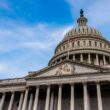Fortunately, economic shocks akin to the coronavirus pandemic are rare events, but when they do happen, changes are far-reaching and permanent.
Based on the global output, the economy is showing positive signs of recovery from a slump that has not been witnessed by any of the world’s 7.7 billion population. Although vaccines are expected to accelerate the economic rebound even further in 2021, other legacies of the virus will impact and shape global business and growth for many years to come.
There is already evidence of permanent change. Robotics is becoming a genuine force in the service industry and factories. White-collar workers are performing their functions from home. There is bound to be an ever-increasing inequity within and between countries. Governments will continue playing a larger role, spending, and owing, far more money than ever before.
Social Contact on the Fly
It is now commonplace for authorities to track the movement of people, where did they go, and who did they meet? Big government took over the role of paymaster, paying wages when employers could not. In environments such as the U.S. where free-markets have held sway for years, safety nets had to be erected or repaired.
To pay for all these necessary interventions, governments have created a budget deficit totaling over $11 trillion globally. This according to McKinsey & Co. Debate, continues. How much longer can spending at the current rate continue? When will taxpayers have to step up and begin footing the bill? Fortunately, extremely low-interest rates and financial markets that are taking this situation in stride do not point to a near-term crisis, at least in countries with a developed economy.
The rethink of economics has had an impact on the perception of public debt. Society is of the opinion that government at all levels has more room to maneuver in the current low-inflation world. Society is asking government to become more proactive to drive economic growth.
Easy Money
Monetary intervention by the Fed has created the easiest financial conditions seen in years. The Fed is printing money. Interest rates are at historic lows. Central bankers have widened quantitative easing, buying corporate and government debt.
This level of monetary intervention has created financial conditions that have unleashed a flurry of speculative investment. Although analysts are concerned about the hazards that may lie ahead, they understand that central bank policies will be difficult to reverse.
Debt and Who Gets Support?
During the pandemic, the government has offered easy credit as a lifeline, and it has been grabbed and gobbled-up by businesses. One result is a huge increase in corporate debt. The Bank for International Settlements, headquartered in Basel, Switzerland, has calculated that non-financial companies have borrowed $3.36 trillion during the first half of 2020.
Lockdowns and consumer caution have caused revenues in many industries to plunge. In addition to lower revenue, losses are piling up. The conditions are unfortunately right for a solvency crisis in business according to a recent report.
There is growing concern that too much support is being given to too many companies, with little or no discrimination over who the recipients are. This, according to some, creates “zombie” companies, companies that cannot survive without state aid, resulting in a less productive economy.
The Great Divides
Developing countries lack the financial resources to protect jobs and businesses. Nor can they invest in much-needed vaccine the way wealthy countries have been able to do. This situation will eventually create a crisis.
The World Bank sees the pandemic as spawning a new generation of debt and poverty. In their opinion, less fortunate countries may very well be set back by a decade or more.
The Rise of Robotics
The Coronavirus was responsible for triggering concerns about physical contact in environments where social-distancing is extremely difficult. One solution has been to replace people with machines.
The pandemic spurred companies into developing highly automated machines that are capable of replacing humans. Robots are now found cutting salad in restaurants, collecting tolls, and even acting as a desk clerk in a hotel. As well as robotics taking the place of people, a great deal of shopping has moved from the store to online.
Although society is more productive, it also means that when it is safe to return to work, there will be no job waiting. The longer people remain idle, the more their skill-sets will atrophy.
The current situation has forced companies to fast-forward into an unknown future that will test their ability to marry people and technology in a way many have never seen. Companies are facing the moment of truth. Will their post COVID world be the world of yesterday, or will it be the sustainable version of tomorrow’s needs and expectations?
WeInvests is a financial portal-based research agency. We do our utmost best to offer reliable and unbiased information about crypto, finance, trading and stocks. However, we do not offer financial advice and users should always carry out their own research.
Read More













